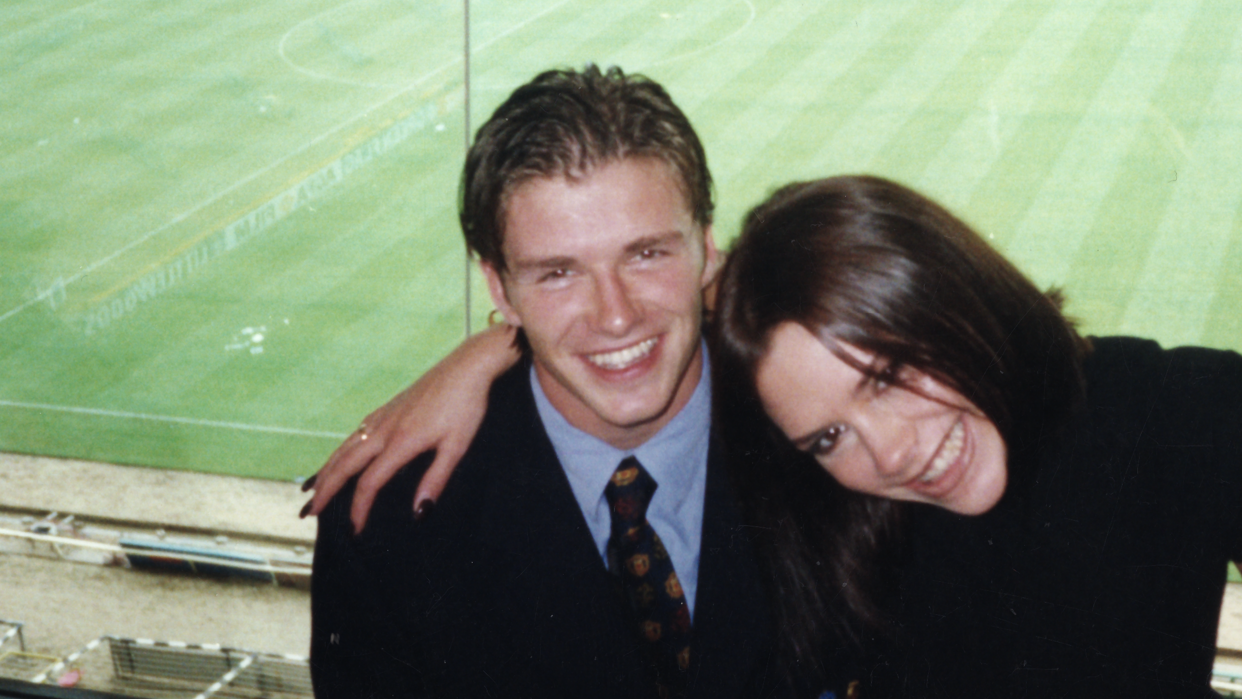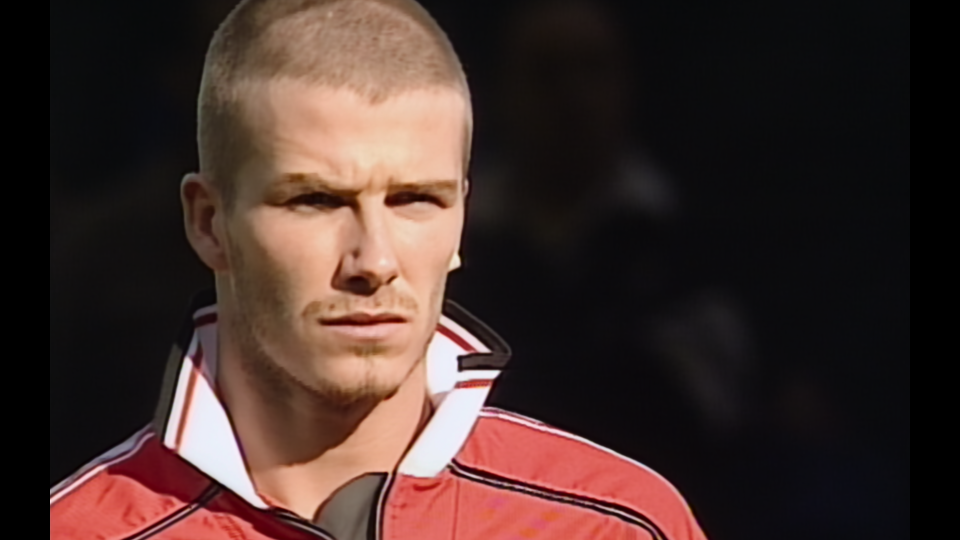Netflix’s ‘Beckham’ Is a Very Good Docuseries with Two Glaring Flaws

Editor’s note: A few hours after this was published, a Netflix rep for “Beckham” emailed us Fisher Stevens’ answers to questions we asked on Thursday. His replies have been added to the bottom this article.
Even if you call football “soccer” like this ugly American, Netflix’s “Beckham” may be a docuseries for you.
More from IndieWire
Director Fisher Stevens’ four-part series certainly reminds viewers of David Beckham’s greatness on the pitch, but the project is at its finest away from the sidelines. Stevens had in-depth (“unprecedented,” per Netflix press notes) access to David and Victoria Beckham — until he didn’t.
Stevens is a serious documentary filmmaker: He directed Leonardo Di Caprio in 2016 Nat Geo climate change doc “Before the Flood” and won an Oscar in 2010 as a producer on documentary “The Cove.” He also landed an 2020 Emmy nomination as executive producer of another Netflix docuseries “Tiger King.” And it’s when Stevens stops asking questions that “Beckham,” an otherwise very good documentary series, runs into a bit of trouble.
At the tail end of Episode 3, the matter of David’s alleged extramarital affair(s) from his time in Madrid arises. Thanks to Netflix’s binge model, viewers are only a few minutes from the fourth and final episode, which feints a return to the topic of Beckham’s alleged infidelity but only circles it, over and over again.
In separate interviews — they’re rarely interviewed in the same room — neither of the Beckhams ever provide a direct acknowledgment or a denial. Which is fair, because Stevens never asks a direct question as to whether David had an affair.
Speaking to the Sunday Times of London, Fisher explained his approach. “It wasn’t pleasant, but we got into it,” he said. “For me, I approached it as ‘How did your marriage stay together?’ You’ll see how he responds. I talked with both of them about the difficulties they went through.” (IndieWire attempted to reach Stevens for this article and did not receive a response.)
It’s a hard question, but it should be an inevitable one in a tell-all docuseries that is very much about the Beckhams’ marriage, celebrity, and their relationship with the media. Instead, the crisis is framed as one not of infidelity, or any action by the Beckhams, but of the tabloids.
Stevens starts with David: “So, multiple tabloid stories broke, and how did you feel with that?”
Beckham speaks slowly, somberly, and deliberately. “There was some horrible stories that were difficult to deal with,” he said. “It was the first time that me and Victoria had been put under that kind of pressure in our marriage.”
Cut to Victoria, who also provides an indirect answer to an indirect question. “Would you say that was the hardest time in your marriage?” Stevens asks her.
“A hundred percent. It was the hardest period for us, because it felt like the world was against us,” Victoria said. “And here’s this thing: We were against each other, if I’m being completely honest. You know, up until Madrid, sometimes it felt like us against everybody else. But we were together, we were connected, we had each other. But when we were in Spain, it didn’t really feel like we had each other, either. And that’s sad.”
We then go back to the guys, with Stevens’ camera back up close and intimate on David’s face. He speaks about feeling alone during the early days with Real Madrid, the club Beckham was sold to after half-a-lifetime with Manchester United.
In another cutaway to Victoria, she speaks again about how “hard” that period was for the couple.
Back to David.
“How do you think you guys survived that?” Stevens asks.
“Um, I don’t know. (Long pause.) I don’t know. (Another long pause.) Um, I don’t know how we got through it in all honesty. Victoria is everything to me. To see her hurt is incredibly difficult, but we’re fighters and at that time we needed to fight for each other. We needed to fight for our family. And what we had was worth fighting for,” Beckham said. “But ultimately it’s our private life.”
End of conversation.
To be clear: I don’t care about celebrities’ personal lives. I find tabloids disgusting, so I don’t read them. (The UK tabloids are a villain in their own right in “Beckham,” with plenty of evidence to back it up.) I didn’t even know about the Beckham affair allegations until “Beckham.”
However, in a documentary that successfully interrogates his passion for football, his single-minded devotion that often slides into selfishness, the complex relationship with his father who insisted that his son love the game, it was striking how Stevens allowed his subject to skirt this subject alone.
That kind of vagueness on a key topic weakens a documentary. Did the filmmaker become too close with his subject — or worse, was he too intimidated or enamored? (The Beckhams are not producers on “Beckham.”)

That brings me to the series’ other flaw: For my taste, there’s too much Stevens in “Beckham.”
It wasn’t egregious, like director Rachel Fleit’s weird self-interviews in “Bama Rush” (“Beckham” is also a much better documentary than “Bama Rush”), but with Stevens it happened early and often. As “Beckham” begins, the former English soccer captain dons a full beekeeper suit to tend to his country home’s beehives.
“What’s the name of your honey again?” Stevens asks.
“There is a bit of an argument in the house at the moment,” Beckham replies. “I think it should be ‘Golden B’s,’ Victoria thinks it should be ‘DB Sticky Stuff.'”
“That could get you in trouble with HR,” Stevens quips.
To be fair, here Stevens is a creative making a clear creative choice. Each of the four episodes opens with a conversation between him and David; Episode 2, “Seeing Red,” begins with Beckham making coffee for Stevens, who in turn thanks his “buddy.” It all seems a little too buddy-buddy.
The choice isn’t unique among documentary filmmakers; Errol Morris’ voice can be heard off-camera in some of his Interrotron interviews (and Fisher has his own version with intense close-ups of Beckham and other football players, often so we can see their reactions as they watch an old match).
And unlike most documentarians, Stevens was an actor long before he became a producer and director. Until recently he may have been most familiar as the guy who starred opposite Ally Sheedy in the “Short Circuit” movies, but he’s been working for nearly 50 years. Today, he’s arguably best known as an actor for his performance as squirrelly flack Hugo Baker on “Succession.”
Stevens occupies a rare and enviable space: As he approaches 60, his careers as a producer, director, and actor all appear to be approaching their prime. “Beckham” is a hit: It’s been the streamer’s no. 1 series in its daily Top 10 since its October 4 launch. However, skirting a key difficult question, the HR joke, and thanking his buddy for coffee are focus pullers for Stevens the actor and it does a disservice to Stevens the filmmaker. And he’s a good one. “Beckham” is a very worthwhile watch — but if Stevens gets out of his own way, he could be great.
Fisher Stevens responds: “I had no relationship with the Beckhams before and really had very little interest in them before I met them. I knew very little about them except they had branded themselves well. That made me wary. I was actually reticent about taking this on.
“When I did my first Zoom with David, I was surprised how different and real he seemed in person then the persona I had seen on the telly. I also had no idea what an amazing player he was. After I had dinner with him and Victoria I was sold. She was funny and self effacing, they had an incredible chemistry. We didn’t ‘hang out’ while making this film, purposely.
“I used my voice to be the voice of the audience. It also helps make the series less stiff.
“It makes the film more conversational. It was a balance how much to use. One my editor, my producers and I constantly were aware of but we knew going in that my voice would be part of it.
“In terms of the cheating question I told David when I agreed to do the film that we would have to discuss the accusations of infidelity they faced in Madrid. I am interested in how it affected his marriage and his family and his playing. How did he keep it together. All of it. How did they get through it? That is the theme of the series. This series is not some Tabloid show.”
Dana Harris-Bridson contributed to this report.
Best of IndieWire
Sign up for Indiewire's Newsletter. For the latest news, follow us on Facebook, Twitter, and Instagram.


